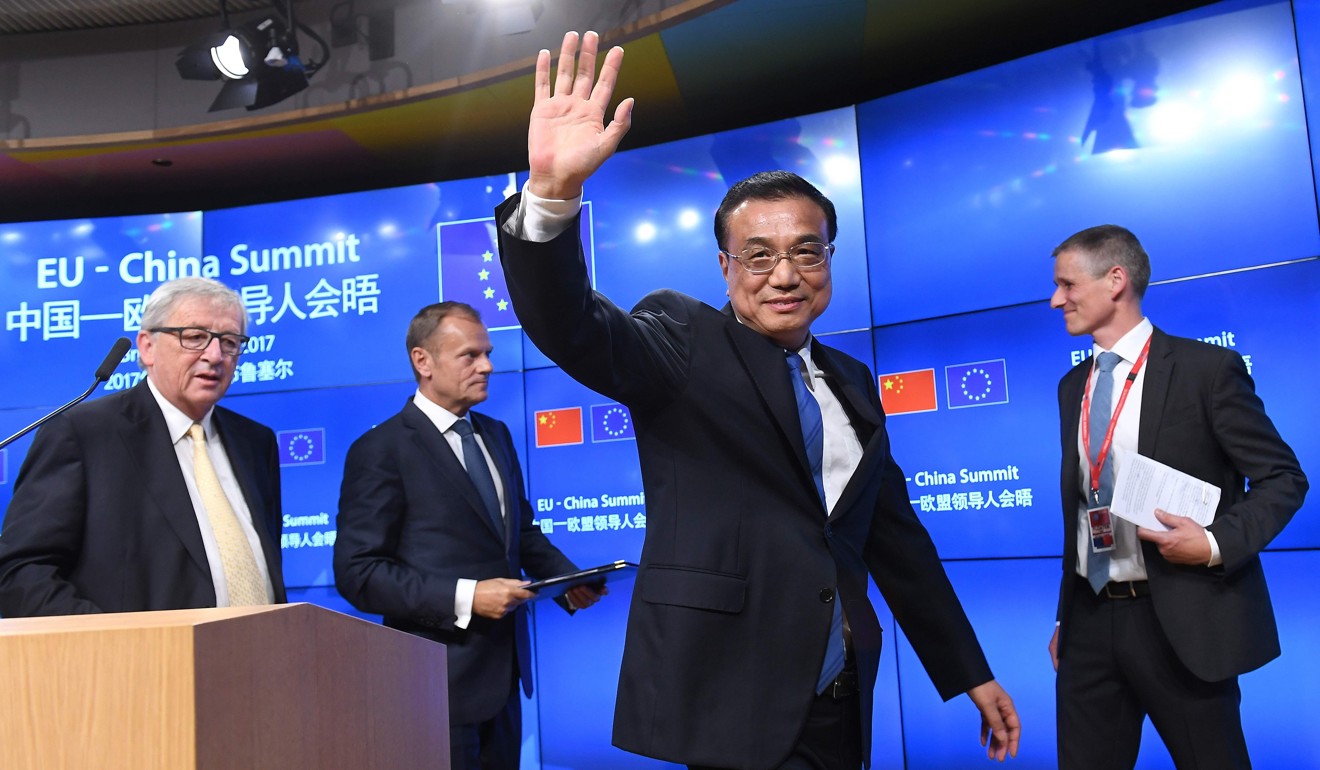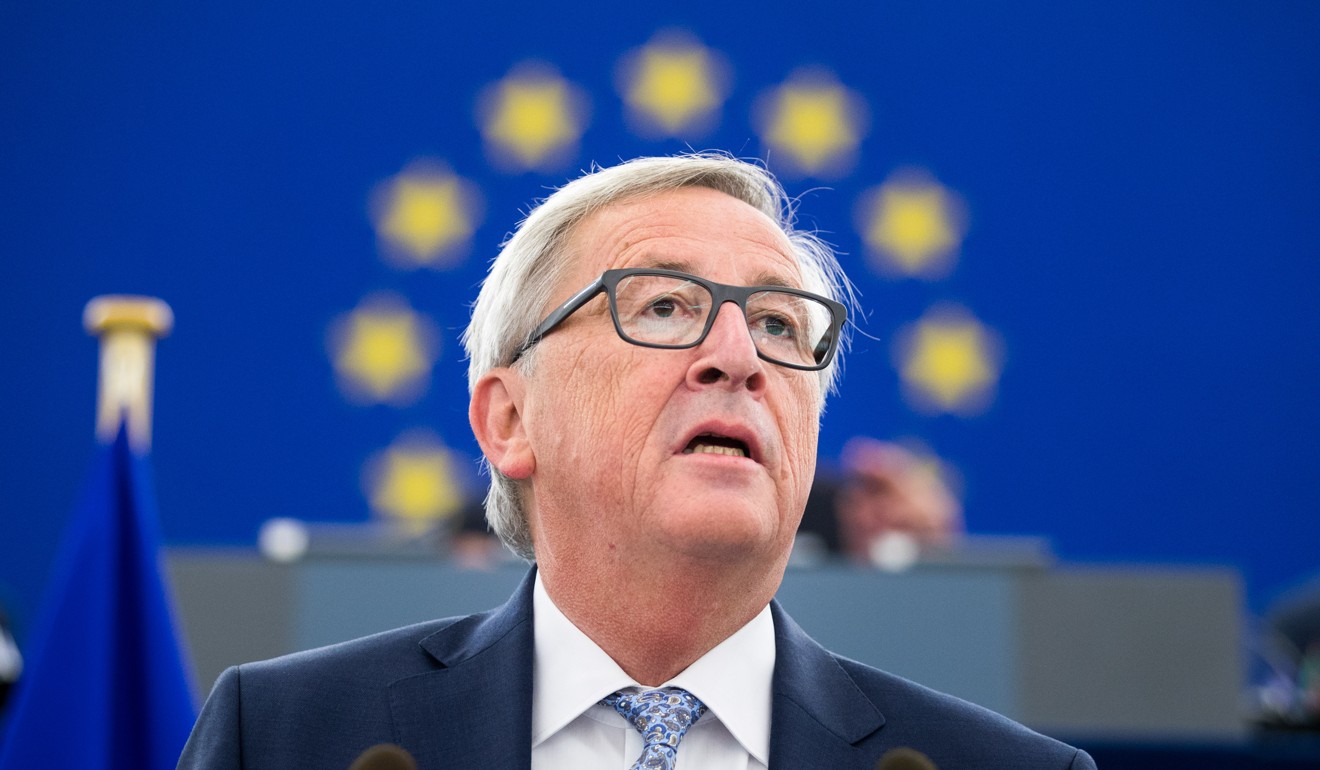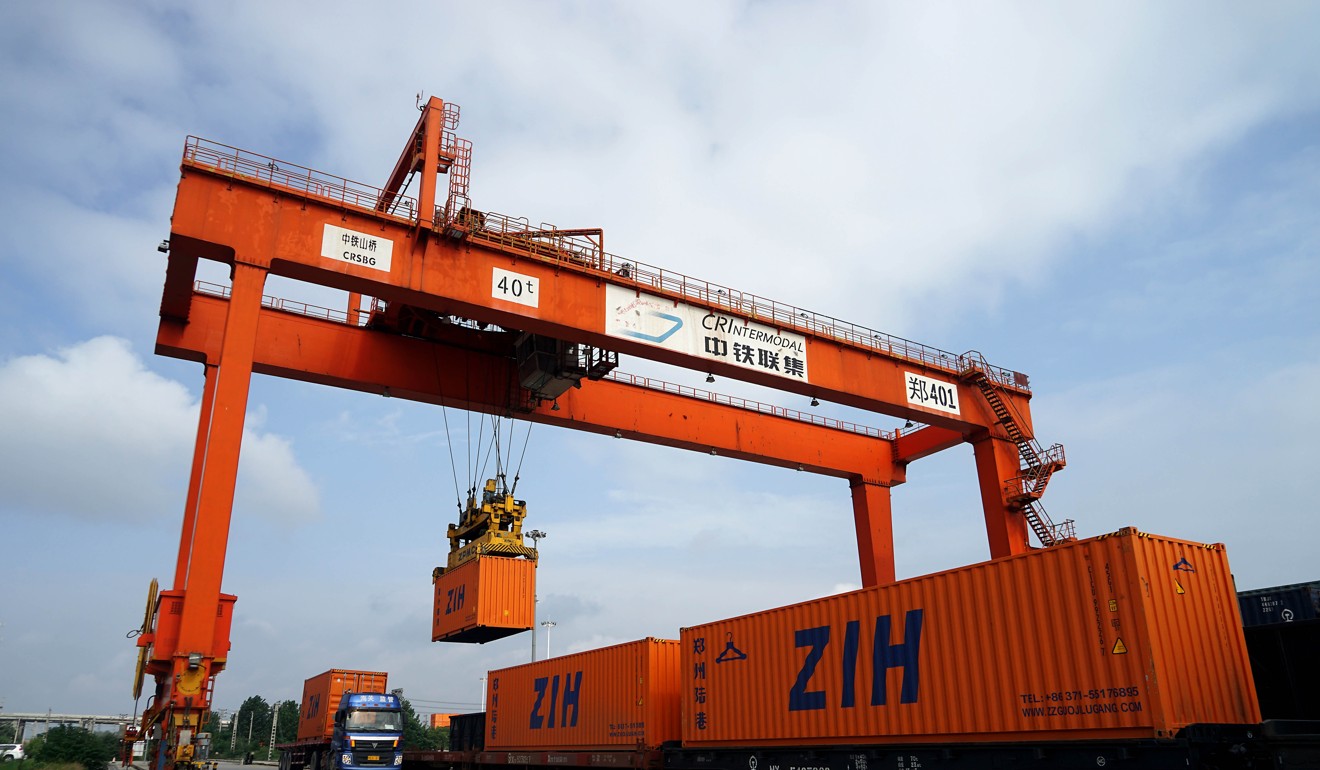
China’s economic ties with EU take hit as investment falls and distrust rises
Annual economic talks failed to eventuate at end of last year and China is also dragging its heels on Juncker plan investment
After years of growth, China’s trade ties with its biggest partner, the European Union, seem to be foundering, with frictions growing over a range of issues from steel overcapacity to market access, human rights and the South China Sea.
The tensions were apparent at the end of last year when Brussels and Beijing were due to hold the annual China-EU High-Level Economic Dialogue but the meeting never took place, sources told the South China Morning Post.
There was also no joint statement at the end of the annual China-EU summit in Brussels in June due to a rift on whether to grant China market economy status, which would make it easier for Chinese exporters to avoid high anti-dumping and anti-subsidy duties.
In addition, Beijing’s participation in Brussels’ massive investment plan is proceeding slowly.
“Distrust and conflicts have been on the rise in the past couple of years,” said Zhao Junjie, a European issues specialist at the Chinese Academy of Social Sciences.
Zhao said the EU was grappling with rising populism and fading solidarity, and its trade relationship with China was coming under increasing pressure from the attitude of individual member states and far-right political forces.
“[The EU] may become tougher and raise higher demands in the coming years when dealing with China,” he said.
One sign of that distrust was a 9.1 per cent fall in EU investment in China to US$8.8 billion last year, according to figures from China’s Ministry of Commerce.

Unhappy with China’s market access restrictions for foreign companies and worried about the security risks posed by a rapid inflow of Chinese investment, especially that targeting hi-tech assets in Europe, Brussels is working on legislation to screen foreign investment.
Meanwhile, Chinese investment in the EU rose 76 per cent to US$81 billion last year, according to a report by law firm Baker McKenzie.
China has sought to increase its presence in the European market for years and showed early interest in investing in a plan proposed by European Commission President Jean-Claude Juncker in late 2014.
“China has expressed interest in participating in the Juncker plan, without committing, however, to any specific amount,” EU ambassador to China Hans Dietmar Schweisgut said.
The European Fund for Strategic Investments (EFSI) – the core of the investment plan – has triggered commitments worth €264.3 billion (US$324.6 billion), the EU says on its website, more than halfway way to its €500 billion target by 2020.
Two sources said Beijing had planned to contribute €2 billion to EFSI in 2015, when the EU was struggling with the European debt crisis and was in desperate need of capital.
“The amount was not much, but it was symbolically significant to have China in the investment programme,” one source said.

However, the source said, Beijing was disappointed its contribution would not be regarded by Brussels as a guarantee of business contracts but only as a pass allowing Chinese companies to compete for investment plan projects, and so, in 2016, China abandoned its plan to contribute to the fund.
The second source said the plan had failed because Brussels was worried intervention by Beijing could threaten European security interests.
“EU officials were also concerned about the potential government background of investment by Chinese private companies,” he said.
Despite the setback, both sides called for China’s belt and road plans and the Juncker scheme to be better connected.
“Both sides agreed in 2015 to set up a joint working group to increase cooperation on all aspects of investment and the working group had several meetings with the purpose of finding ways for China to participate in the investment plan for Europe,” Schweisgut said.
In June, the European Investment Fund, which reviews Juncker plan projects involving small and medium-sized enterprises, and China’s state-backed Silk Road Fund signed a memorandum of understanding with the aim of jointly investing in private equity and venture capital funds.
“The negotiations on this fund are now at an advanced stage and we expect they can be concluded soon,” Schweisgut said.
Zhao said China’s Silk Road ambitions in Europe had fared best in Central and Eastern European countries, via the “16+1” platform.

Total Chinese investment in the 16 European countries, 11 of them EU members, reached US$9 billion last year, with projects including car-making, transport and logistics.
But the closer economic interaction between China and the Central and Eastern European countries fuelled concerns in Brussels that China was seeking to divide the EU and influence EU issues.
Former vice-minister for commerce Wei Jianguo said internal headaches such as the Brexit talks, immigration and terrorism might hurt integrity of the EU bloc and affect its approach to China.
“Europe is at the crossroads,” he said. “It should not go from being an advocate of free trade to a protectionist.”

